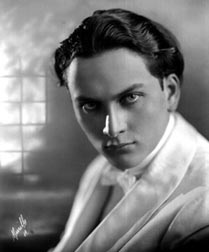INTRODUCTION
by
Manly P. Hall

It would have been a real loss to all students of mysticism and metaphysics if this little essay on H.P. Blavatsky and "The Secret Doctrine" had not found its way into print.
Max Heindel, the Christian mystic, pays homage to Madame Blavatsky, the Oriental occultist. He sees above the little differences which divide the West from the East and rejoices in the great wisdom which has flowed forth out of Asia, rendering fertile the plains of the world's thought. Great is the mind which rejoices in the greatness of other minds. Max Heindel's tribute to the memory and work of Blavatsky and her Masters is a truly beautiful gesture in a world little given, alas, to such gentle impulses.
We live a code of criticism and condemnation with small appreciation of the works of others. Sects and creeds build up walls about themselves, and only heroic souls in whom spiritual perceptions are truly awake can rise above these imaginary limitations. Think back over the books that you have read and recall how seldom it is that any writer speaks well of another. Each man, firm in his own opinions, gives scant courtesy to the opinions of others. There are many teachers in this world who instruct with words, but only a few who instruct with the noble example of generous deeds.
In his textbook of Christian metaphysics, "The Rosicrucian Cosmo- Conception", Max Heindel refers to Madame Blavatsky as "a faithful pupil of Eastern Masters" and in the same paragraph he speaks of her great book "The Secret Doctrine" as an "unexcelled work." With his deep appreciation of spiritual values Max Heindel was eminently qualified to recognize the fundamental merit of Madame Blavatsky's work. The Christian mystic is here revealed as a sincere student of Oriental occultism. His summary of The Secret Doctrine in the latter part of this book reveals a remarkable grasp of the outstanding principles of the monumental spiritual traditions of Asia. In a few brief and simple words Mr. Heindel sums up Cosmogenesis, the creation of the world, and Anthropogenesis, the creation of man. Both Rosicrucians and Theosophists, in fact all sincere students of the occult sciences, will benefit from a consideration of this summary.
The manuscript of this present book may properly be considered as Max Heindel's first literary effort. It was the beginning of a considerable metaphysical literature devoted to the application of mystical idealism to the living problems of s sorely afflicted mankind. It has been written that "the first shall be last." This little book brings into print the only remaining unpublished manuscript of Max Heindel. The manuscript originally consisted of the notes of two lectures delivered before the Theosophcial Society in Los Angeles. In the years which followed the preparation of these lectures Max Heindel greatly increased his store of mystical knowledge and has justly earned recognition as America's foremost Christian mystic. His reverence and respect for Madame Blavatsky in no way altered, however, and to the day of his death he always referred to her in terms of highest admiration. It was through the writings of Blavatsky that Max Heindel received in this life his first knowledge of occult sciences. He recognized gratitude to be the first law of occultism and his fine soul preserved to the end a beautiful spirit of gratitude for the inspiration and instruction he had gained from the Secret Doctrine.
Both Madame Blavatsky and Mr. Heindel dedicated their lives to the service of mankind. Each was devoted to the dissemination of spiritual knowledge. Both were rewarded for the most part by ingratitude, persecution and misunder- standing. Both suffered from the falseness of friends and learned how cruel the world can be to those who seek to educate and improve it. Only the leader of a spiritual movement can realize how heavy a responsibility leadership can become. Madame Blavatsky had already passed into the invisible world before Max Heindel began his ministry. They never met upon the physical plane. Though denied personal acquaintance with the great Oriental occultist, Max Heindel came to understand Blavatsky through years of similar service to the same high ideals. He came to understand her as only a mystic can, and his appreciation of her loyalty and her patience was deepened by the adversities which he himself endured.
Both H.P Blavatsky and Max Heindel gave their lives in a beautiful service to the spiritual needs of the race. Both went to early graves, broken by responsibility and persecution. Each has left as a legacy to unborn generations a metaphysical literature which shall survive the visissitudes of time.
The true purposes of mysticism are to perpetuate, interpret and apply the idealism of the race. Men turn to religion for guidance, encouragement and solace. We want religion to stand back of us when we try to live honest lives.
We want to know that there exists somewhere in the world a body of united people who are upholding spiritual values in a world of crumbling material manifestations. We are all seeking inspiration. We want ideals. We want a worthy purpose to unite us in action. We desire to establish in this vale of tears a spiritual structure which shall be elevated above the humdrum. We want to go out into life recognizing our spiritual institutions as oases in a desert of materialism.
Civilization is in the throes of a great reconstruction period. As never before in recorded history men are seeking solutions to imminent and eminent problems. Church and State alike are reaching out to grasp something that is ecure, something they may cling to when the world they have known passes into oblivion.
In all parts of the civilized world there are men and women devoted to mystical interpretations of life. These men and women are dedicated to a code of spiritual ethics which has as its foundation two great principles: the Fatherhood of God and the Brotherhood of Man. These students are for the most part organized into various groups large and small for the express purpose of self-improvement and social betterment. Such groups may be classified under two headings: First, those whose inspiration is fundamentally Christian; and second, those essentially Oriental. While these groups are divided, by emphasis, the fundamental purposes which they seek to attain are identical, for all enlightened religious movements have as their chief aim and purpose the regeneration of man, individual and collective.
Max Heindel was a pioneer in Christian mysticism and Madame Blavatsky was a pioneer in Oriental occultism. Both established systems of thinking which spread rapidly throughout a soul-hungry humanity. Not only did they leave organizations of their own, but the seeds which they planted in the hearts of men have sprouted forth and borne fruit in many parts of the world, where other organizations have been established along similar lines. There is a considerable body therefore of mystics and occultists in America and their number is increased each day by earnest men and women whose hearts and minds are crying out for some reasonable explanation for the changes which are occurring in society.
Nearly all students of the occult sciences in America know the work which Madame Blavatsky and Max Heindel have accomplished. The lives of these two religious founders are a constant challenge to greater spiritual effort and more unselfish devotion. If we admire these great leaders we shall desire to further their work by the intelligent perpetuation of their doctrines through word and action. During the period of the great Wrold War metaphysics lost a great opportunity to make a permanent contribution to the race by allowing itself to be broken up by internal disruptions and controversies. Organizations which should have been dedicated to the unselfish service of mankind instead wasted their energy in vain wranglings over personal issues of little if any importance.
Our present crisis is far greater than the World War. The whole civilized world is struggling against selfishness and corruption. A new and great opportunity is at hand for the application of spiritual solutions to material problems. It is the duty of all spiritually enlightened individuals to forget all differences, sacrifice all personal ambitions, and rededicate themselves to the great ideals which brought their various orders and societies into existence.
During the great boom period immediately preceding the present economic crisis even mystical organizations were infected by the bacilli of wealth, personal ambition and exploitation. Personalities eclipsed principles and individuals and organizations departed from those simple truths which are the essentials of intelligent living. Then came the collapse. Material values dropped like plummets to an unfathomable depth. Ambitions were scattered to the winds and the race was confronted with problems which can only be solved through a restatement of spiritual values and a rededication of men and organizations to principles of enlightenment and truth.
Suppose this very day H.P. Blavatsky, the lioness of the Theosophical Society, should return from the Amenti of the wise, and should demand an accounting from the members of the society she had founded. Who could stand before her and say honestly, "Beloved teacher, we have done our best, we have remained true to you and the Masters for whom you spoke." How many could say, "We have been honest, kind, just and impersonal; we have hewed true to the wisdom you gave us; we have spread your message; we have read your books; most of all we have remained absolutely free, as you bade us, from all disastrous entanglements and alliances." How many could say, "Here is your Society as clean as when you gave it to us." Could Theosophists do this or would they become abashed and unable to gaze into the great sad, luminous eyes of the first and Greatest Theosophist? Could Madame Blavatsky walk through the corridors of Adyar and turn to those who represent her in the twentieth century and say, "Well done, good and faithful servants?" If she could not say this, why not? Is it because they have remembered her name and forgotten her work? Is it because weak, petty men and women have so forgotten the greater good that they have elevated themselves to power upon the wreakage of ideals? Theosophists of the world, rededicate yourselves to the noblest spirit that was among you, whose labors are your wealth, whose ideals are your purpose, and whose unselfish sacrifice is the cornerstone of your organization.
Suppose, in the same spirit, that Max Heindel returned to the fields of his earthly labors and in simple gabardine walked among his followers. Suppose he should say to them, "Brothers and sisters, have you loved one another? I planted a rose garden of virtues; have you tended it carefully? My name is upon your lips, but is my work in your hearts? Have you been true one to the other? Have you labored unselfishly, impersonally? Have you so greatly loved our Heavenly Father that you have loved all men also?" How would The Rosicrucians answer him? Could they say, "Beloved Brother, our constant inspiration, we have fulfilled your works in humility and gentleness. There has been no pride among us, no selfishness, no personality, no small ambitions at a great cost. Here is the Fellowship you gave into our keeping. We can return it as beautiful, as clean, as united in holy purpose as you intended it to be. There is no jot and tittle observance here; we are united not in petty things but in great things. In the fifteen years since you passed away into greater life we have sought to do your work. We are as you intended us to be-- men and women in whom there is no guile." Would these words be true? If not, why would they not be true? Is man too weak to carry on a good work? Is his littleness so great and his greatness so little?
If we should feel ashamed if our leaders should return to us again and we should know that we have failed them, let us rededicate ourselves to them. Let the spirit of H.P. Blavatsky be reborn in the heart of each Theosophist and the spirit of Max Heindel live again in the heart of each Rosicrucian. When this time comes, and may it come, the mystics and the occultists of the world can clasp hands across the gulf of their differences and, united in purpose, be an army of spiritual reconstruction marching like the prophets of old in the vanguard of progress.
-Manly P. Hall
1933

|
[COVER] [CONTENTS] [INTRODUCTION] [BIOGRAPHY OF MAX HEINDEL] [CHAPTER I] [CHAPTER II] [CHAPTER III] [CHAPTER IV] [CHAPTER V] [APHORISMS BY MAX HEINDEL] [LINKS]

A Quarterly Rosicrucian Online Magazine
Click here to return to home page.